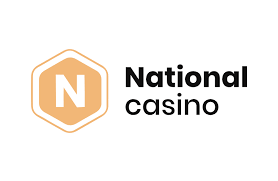
A Canadian senator has sparked a national debate by calling for sweeping restrictions—or even a full ban—on sports gambling advertising, arguing that such ads fuel societal harm and dramatically increase risk for Canadian youth. Amid an online casino and sportsbook boom unleashed by Canada’s recent regulatory reforms, these proposals reflect increasing public and expert concern about responsible gambling, youth protection, industry marketing ethics, and the future of digital wagering in Canada.
The Case for Reform: Senator Marty Deacon’s Push
Senator Marty Deacon from the Waterloo region has proposed Bill S-211—a far-reaching measure that would eliminate all sports gambling commercials from Canadian broadcasts, venues, and online platforms. Deacon’s core argument is that, while the rush to regulate and launch legal wagering has fueled unprecedented growth for operators, much less care has been devoted to guarding the public from harm, particularly young people. Industry marketing, he insists, “runs rampant,” normalizing betting and targeting the impressionable through relentless incentives and celebrities.
What Bill S-211 Would Do
-
Ban all sports betting ads on TV, online, and at venues
-
Prohibit celebrities and athletes from appearing in gambling promotions
-
Establish a unified national advertising standard—mirroring alcohol and tobacco
-
Set strong restrictions on when and where gambling ads can appear
These moves go far beyond patchwork provincial rules, mandating one federal standard—something Dr. Deacon claims is urgently needed for consistency and stronger protection.
The Research: Gambling Ads and Youth Harm
Senator Deacon’s warnings align with a growing body of national and international research. Dr. Shannon Charlebois from the Canadian Medical Association Journal highlights a disturbing pattern: youth exposed to sports gambling ads are far more likely to see wagering as “normal” and risk-free. Clinic observations reveal 13- and 14-year-olds engaging in online betting with parents’ credit cards, racking up significant losses before their families even know.
Experts repeatedly caution that such normalization is especially potent for teens genetically and emotionally predisposed to risk-taking. In a digital age where smartphones allow instant betting, aggressive bonus campaigns and celebrity endorsements pour fuel on the fire. Charlebois and other medical experts view gambling advertising as a “known harmful behavior during an impressionable stage”—hence the need for swift, meaningful reform.
Societal Consequences: Beyond the Individual Gambler
The impact of unchecked gambling advertising reaches deep into Canadian society. Researchers and legislators cite several concerning trends:
-
Rapid growth in youth gambling disorders and financial harm
-
Social media and influencer campaigns targeting younger users with bonus offers
-
Normalization of wagering through exposure during major sports events
-
Increased risk of mental health struggles, stress, and family disruption
These consequences echo regulatory responses in other nations where advertising bans (such as Italy’s national block on gambling marketing and UK efforts to limit TV ads) have produced positive public health outcomes.
The Industry Viewpoint and Ethical Debates
Major Canadian sportsbooks, online casinos, and marketing agencies warn that total ad bans could stifle innovation, reduce consumer choice, and push players to unregulated offshore platforms. Industry spokespeople counter that responsible advertising, clear age limits, and warning messages are already in use, with further improvements possible through partnership rather than prohibition.
Yet community advocates and public health groups remain firm: protecting at-risk users trumps the interests of gambling brands. They point to tobacco and alcohol regulation as proven models for social protection, transparency, and industry accountability.
Regulatory Landscape: Patchwork vs. National Approach
Canada’s current patchwork of provincial gambling advertising rules has led to regional disparity in protections and enforcement. Ontario, Quebec, and British Columbia set their own guidelines, but online channels and national broadcasts often sidestep regional law by promoting ads from outside the province. Bill S-211 aims to fix this—with one standard applicable coast to coast, reducing confusion and plugging loopholes that marketers exploit.
Responsible Gambling Efforts: What Else Needs to Change?
Beyond advertising controls, experts call for:
-
Comprehensive age verification on all betting platforms
-
Mandatory cooling-off periods and deposit limits for new users
-
Increased funding for youth education and gambling harm prevention
-
Partnerships between regulators, health orgs, and esports leagues to reduce youth exposure
-
Improved digital tracking and data analysis to spot emerging risk groups in real time
Table: Sports Gambling Ad Regulations – Canada vs. Global Benchmarks
| Country | Current Status | Planned/Proposed Changes |
|---|---|---|
| Canada | Provincial patchwork | Bill S-211: Full ban, unified rules |
| UK | TV watershed ban, celeb ban | Further restrictions proposed |
| Italy | Nationwide ad ban | Enforcement ongoing |
| Australia | Ban during sports and kid’s TV | Review for stricter rules |
| USA | State-level rules, FTC review | Calls for federal action |
Canadian lawmakers, public health officials, and community advocates increasingly agree: the risks of unregulated sports gambling advertising outweigh the short-term gains for casinos and sportsbooks. Bill S-211 and related reforms signal a pivotal chapter in Canadian gambling law, with major consequences for how young people experience digital gaming and how the industry defines ethical marketing into 2026 and beyond.


